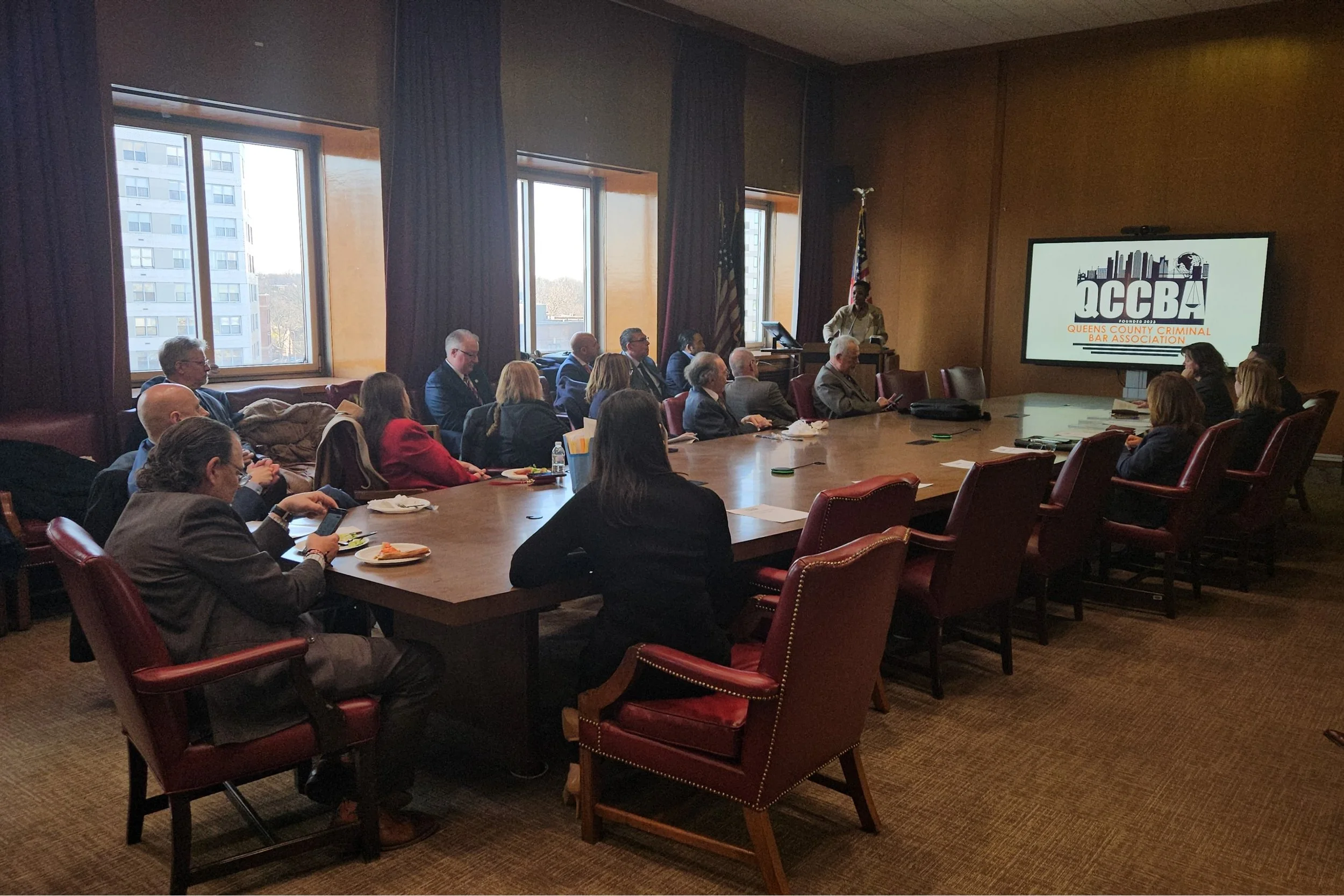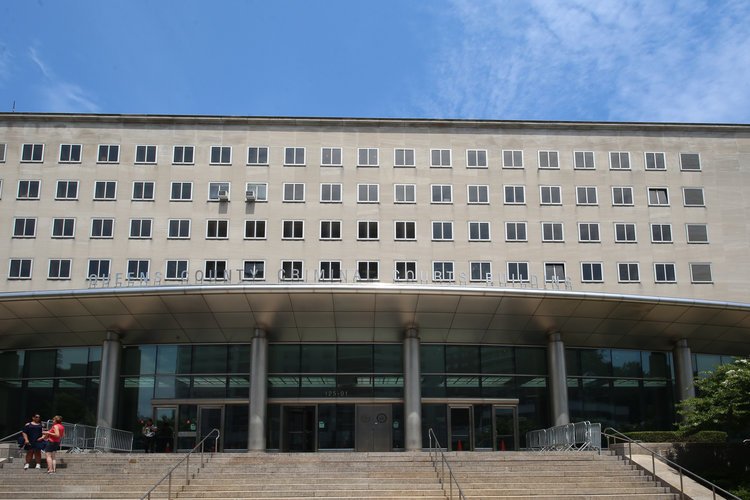Top Queens Criminal Court judge gives state of the judiciary address
/Queens Supreme Court, Criminal Term Administrative Judge Michelle Johnson presented a review of 2024 in the courts and the main initiatives and goals of her administration for 2025 to the the Queens County Criminal Bar Association. Eagle Photo by Noah Powelson
By Noah Powelson
The top judge in Queens’ Criminal Court laid out the successes and failures of the court in the last year and mapped out the road for the year ahead during the Queens County Criminal Bar Association’s State of the Judiciary meeting on Tuesday.
Michelle Johnson, who was recently named the administrative judge for the Queens County Supreme Court's Criminal Term, gave an update on the state of the court, and shared the court’s 2025 goals, including to introduce new technologies and systems that will expedite case processing while maintaining efficiency.
“We are continuously improving with purpose,” Johnson told the group of Queens judges and attorneys.
The address, a first for Johnson, was organized by the Queens County Criminal Bar Association, a young organization that began with just 12 defense attorneys and prosecutors in 2023. The organization has grown rapidly over the past year, and held its annual meeting in tandem with the judicial address on Tuesday.
Johnson gave a review of 2024 in the Queens Supreme Court, which saw a 60 percent increase in total caseload compared to 2023, and completed 114 trials to verdict in 2024, roughly nine trials per month; and 427 hearings.
On that note, Johnson also said a new initiative is expected to come to the courthouse next month to move even more cases across the docket. The Expedited Case Processing Initiative, which was first laid out by Chief Administrative Judge Joseph Zayas last year, will aim to identify any source of significant delays in case processing and decrease time needed to handle criminal cases from arrests to dispositions.
“We recognize, and our chief judge recognizes, it takes a village to achieve this goal,” Johnson said. “But it benefits everyone. It benefits the defendants, it benefits the defense and it benefits the district attorneys that we shorten the case processing time.”
Johnson said part of the initiative will include more proactive management of the discovery phases of cases, ensuring Department of Correction protocols allow defendants to review discovery items while they are incarcerated, and other programs that can efficiently deliver discovery items to attorneys.
Once the initiative goes into effect, it will apply to all jail cases within TAP-A of the Queens Criminal Court, regardless of incarceration length.
As well as reviewing the discovery process, Johnson said implementing new technology for courtrooms that makes the trial process more efficient while simultaneously increasing transparency is a priority focus for the courthouse. In 2025, Johnson said the main goal is to expand the “clean laptop computer and TV” program.
A “clean laptop” is a computer without existing files or programs. During jury deliberations, jurists can request to review evidence or testimony on a clean laptop. A USB with materials is plugged in the laptop and the jury can stay in the room without interruptions by being escorted back to the courtroom.
Currently, two courtrooms use the program, one of which is Judge John Zoll’s, who said the laptops have been amazing for trials and has expedited and simplified jury deliberations.
“We really hope we can actually achieve that because that would really limit any interference with deliberations,” Johnson said. “Everything now is on video…there’s no way for juries to deliberate without that kind of evidence.”
Outgoing Supervising Judge of Criminal Court Joanne Waters was the other primary speaker at the event. Waters highlighted the successes of courthouses across the borough over the years, particularly with adapting to new technology since the pandemic. Using the example of streaming video in courtrooms, a technology that’s widely used in city courtrooms now, Waters said Queens’ legal community has been longtime trend setters.
The Queens County Criminal Bar Association met on the eighth floor of the Queens Criminal Court house to hear updates and agenda for 2025 from court leadership. Photo by Walter Karling
“I have found working in the boroughs that Queens tends to be the pilot program for the OCA,” Waters said. “Time and time again we show the other counties how to operate because we succeed and they emulate what we do.”
But Waters also said the main challenge for Queens’ courts is staffing. Courthouse staff hiring has improved somewhat the past year but still has not met pre-pandemic numbers, and Waters said more and more staff are expected to do more with less.
“We’ll see what the future brings, but my fingers are crossed,” Waters said. “It seems the new administration is really listening to what our plights are.”
And just as courthouses are seeking to fill their staff roles, QCCBA still has a lot of work ahead of them as the fledgling organization looks to expand further.
Though QCCBA has seen a successful year of growth, they are still looking to expand and bring in more members. Richard Sikes, the president of the QCCBA, said they are still looking for members to fill out bar association committees, including a chair for the LGBTDEI Committee.
“One of the blind spots we had this year is a lot members of the Queens Boulevard legal community may be in need,” Sikes told bar association members. “They may be sick or have unfortunate circumstances in their life. And I think one thing this organization could do but didn’t do is fundraise for those people…I’d love to put something like that together.”
QCCBA is already getting started with the work this week. Following the event Tuesday, the QCCBA co-sponsored the Shape the Future of Justice event alongside the South Asian and Indo-Caribbean Bar Association of Queens. The event was a panel discussion of 18B attorneys who represent indigent clients on their work and experience.





